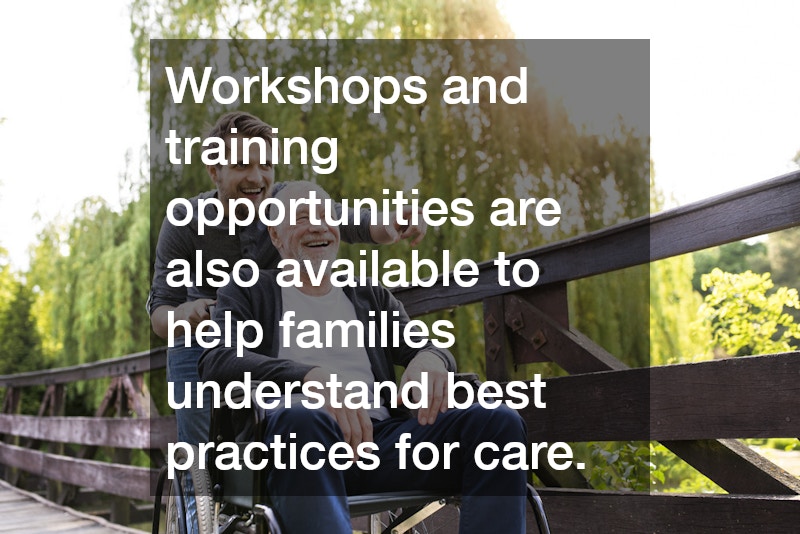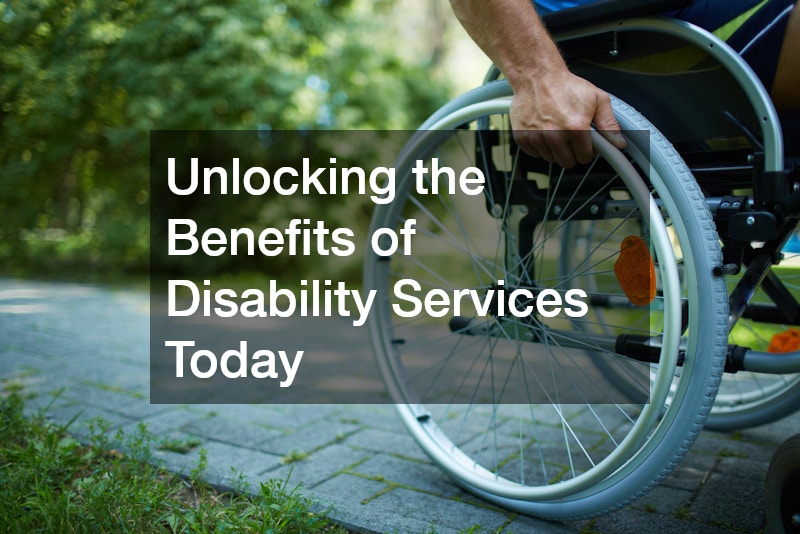Disability services play a vital role in helping individuals with disabilities live more independently and participate fully in their communities. Whether you’re navigating support for yourself or a loved one, understanding what’s available can lead to better outcomes and greater quality of life.
Empowering Independence Through Tailored Support
The right support can open up opportunities that may have once seemed out of reach. Many services are designed to suit the specific needs of individuals, providing assistance with daily activities such as cooking, transport, personal care and home maintenance.
This tailored approach ensures that each person’s goals, strengths and preferences are taken into account.
Independence doesn’t necessarily mean doing everything alone. Instead, it means having the tools and help required to make your own choices and manage life with confidence. With the right team in place, many people find they can take greater control over their routines and future plans.
Building Connections Within the Community
Social inclusion is another important aspect of support services. Community participation programs help individuals form relationships, engage in activities and become part of a broader network. These might include group outings, skill-building workshops or volunteering opportunities.
Being connected to others boosts mental wellbeing and self-esteem. For some, it also means exploring hobbies, sports or learning pathways that can lead to meaningful work or study. Services that focus on community engagement recognise that everyone benefits when all members of society are included and valued.
Navigating the NDIS With Confidence
In Australia, the National Disability Insurance Scheme (NDIS) provides funding to eligible individuals to access a range of services and supports. Understanding how to get the most out of your NDIS plan can be a complex process at first, but there are many providers and support coordinators who can assist.
From developing a plan that aligns with your goals to choosing the right providers, expert guidance can make a big difference. Taking time to review what’s working and what could be improved is key to making sure the plan continues to meet your needs over time.
Supporting Families and Carers
It’s not only individuals who benefit from structured support. Families and carers also gain peace of mind knowing that their loved one has access to consistent, high-quality care. Some services even offer respite options, giving carers time to recharge while ensuring the individual continues to receive personalised support in a safe environment.
Workshops and training opportunities are also available to help families understand best practices for care, communicate effectively and navigate any challenges that arise.
Accessing a Range of Services
Disability services cover a broad spectrum, including allied health support like occupational therapy, physiotherapy and speech pathology. For those with complex needs, access to behavioural support and mental health services is essential.
Technology and assistive devices are also becoming more accessible, helping individuals perform tasks more easily and safely. Whether it’s a mobility aid, communication tool or a smart home feature, technology continues to reshape what’s possible in daily living.
Housing is another key area. Supported independent living (SIL), specialist disability accommodation (SDA) and short-term accommodation (STA) options give individuals choice and control over where and how they live. These arrangements can be tailored to different levels of support, allowing for a better fit with personal preferences and goals.
Encouraging Skill Development and Employment
For many people, gaining new skills and entering the workforce is an important part of their journey. Services that focus on education, job training and employment support can help individuals prepare for, find and maintain meaningful work.
This might include resume writing, interview preparation, on-the-job training or mentoring. Employment not only brings financial benefits but also a sense of purpose, structure and social connection.
Ensuring Quality and Trust
Choosing a provider that prioritises quality, transparency and person-centred care is essential. Look for services that involve individuals in decision-making, offer clear communication and encourage feedback.
It’s also a good idea to check for registration with the NDIS Quality and Safeguards Commission, which oversees standards across the sector. Reading reviews, asking questions and meeting with potential providers in person can help ensure a good fit.
Final Thoughts
Unlocking the full benefits of disability services starts with knowing what’s available and finding support that aligns with your values and goals. Whether it’s increased independence, social connection or employment, these services provide the foundation for a more empowered, fulfilling life.
Taking the first step might feel overwhelming, but there are resources and professionals ready to help guide the way. The right support can make all the difference—not just today, but for the long term.



